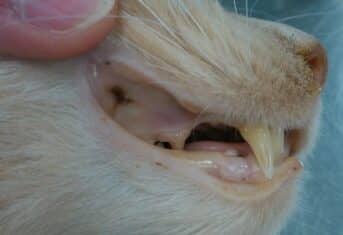National Pet Cancer Awareness Month: Pet Cancer Treatment Options, Part II

National Pet Cancer Awareness Month: Pet Cancer Treatment Options, Part II
November has been designated National Pet Cancer Awareness Month to raise awareness about the causes, prevention and treatment of dogs and cats with this terrible disease. To raise awareness of the possible treatments for pet cancer, this second part of my two-part blog on cancer treatments for pets discusses three additional treatment therapies: chemotherapy, immunotherapy and targeted therapy. Part I focused on surgery and radiation therapy.
Chemotherapy
Although the use of radiation therapy in humans preceded the use of chemotherapy, chemotherapy was more widely used in pet cancers before radiation therapy. Chemotherapy is administered when a biopsy indicates a tumor has spread or might spread, such as in feline breast cancer.
Chemotherapy can also be administered when a tumor is too widespread for either surgical removal or radiation therapy. At the top of the veterinary list of pet cancers treated with chemotherapy is lymphoma.
Veterinary oncologists treat both dogs and cats for lymphoma using a variety of chemotherapy drugs. Most commonly used is the CHOP protocol. CHOP is an acronym representing the first letter of each chemotherapy drug in the protocol and is repurposed from human oncology. Despite the bad reputation chemotherapy has, both cat and dog owners report a good quality of life in their pets receiving chemotherapy.
Immunotherapy
The concept of harnessing the cancer patient’s own immune system to fight cancer is an idea that has been around a long while. The idea came to fruition when a vaccine to treat melanoma in dogs was approved in 2010.
Dogs suffering from melanoma are given four vaccinations over two months and then boostered every six months. This treatment protocol prolonged survival by 300 days or more in dogs receiving the vaccine. In people with lymphoma, treatment using monoclonal antibodies like Rituxan® has dramatically improved patients’ survival time. In a similar vein, AMC oncologists are currently studying a monoclonal antibody against T cell lymphoma and a monoclonal antibody against B cell lymphoma is also available.
On the horizon for the treatment of lymphoma is a new cancer vaccine for a particular type of lymphoma in dogs called large B cell lymphoma.
Targeted Therapy
In 2009, toceranib phosphate, known as Palladia®, became the first targeted therapy approved for use in dogs diagnosed with mast cell tumors.
A second targeted therapy, mastitinib, known as Kinavet®, has conditional approval for the treatment of the same tumor. Targeted therapies exploit a physiologic abnormality in tumor cells, not present in normal cells. Targeted therapies commonly work by turning on or off a cellular process critical to cancer growth and metastasis, halting tumor growth. In the future, expect to see more targeted drugs used in dogs and cats.
Because cancer is diagnosed in over six million pets each year, you may be faced with this diagnosis in your favorite furry friend. But treatment of cancer in pets is possible. You and your pet have more treatment options and more specially trained veterinarians than ever before to help you achieve a good outcome if your pet is diagnosed with cancer. To find a board certified veterinary cancer specialist in your area, visit the American College of Veterinary Internal Medicine website and use their search function.

































